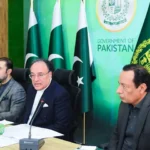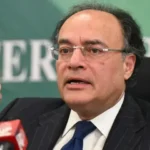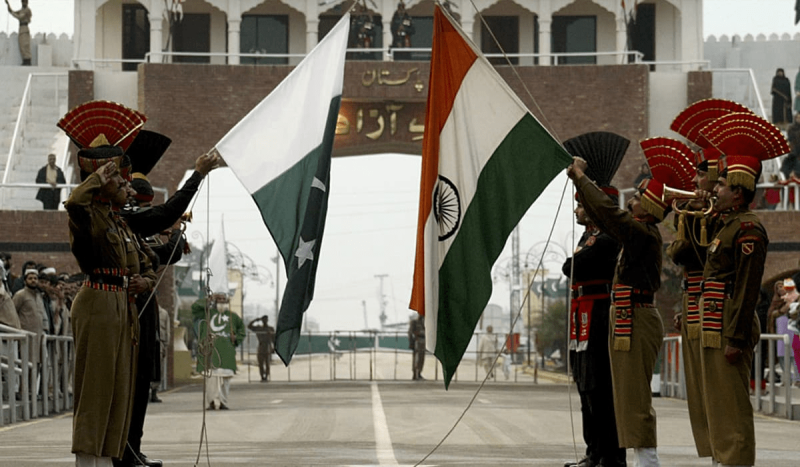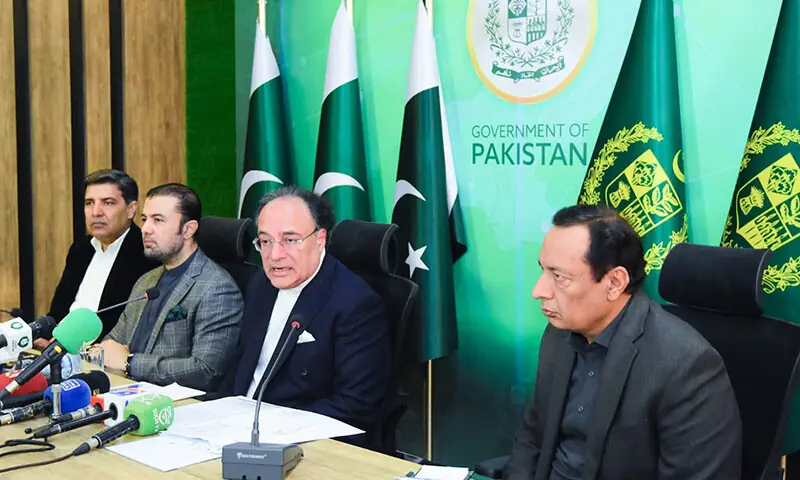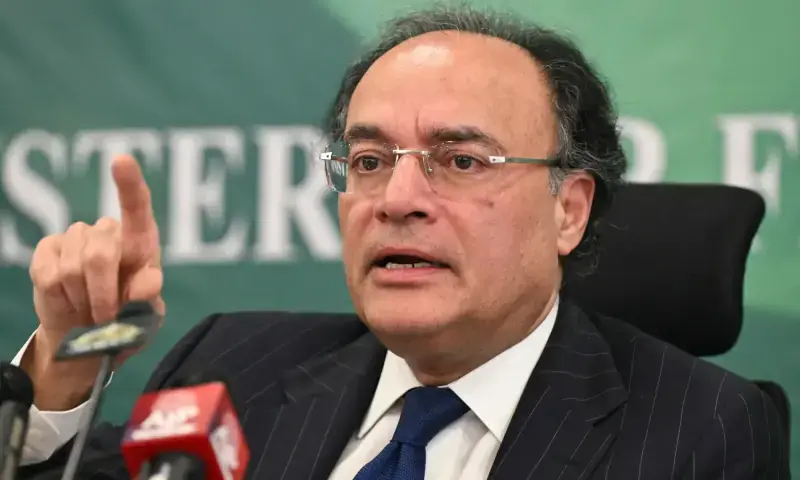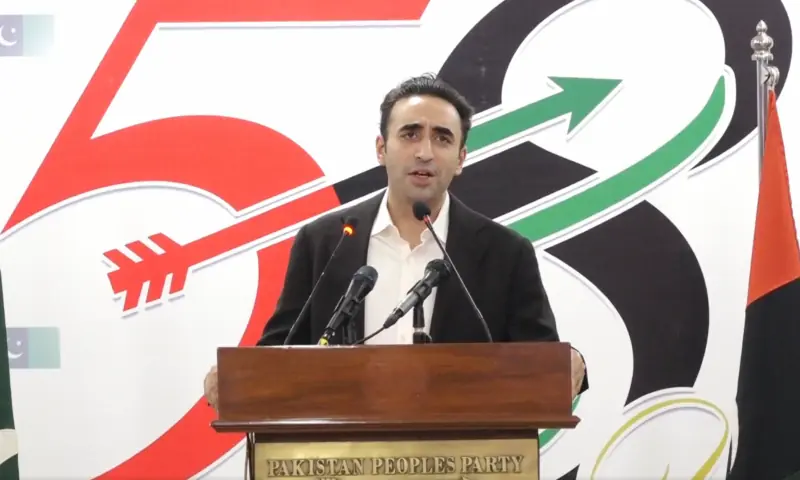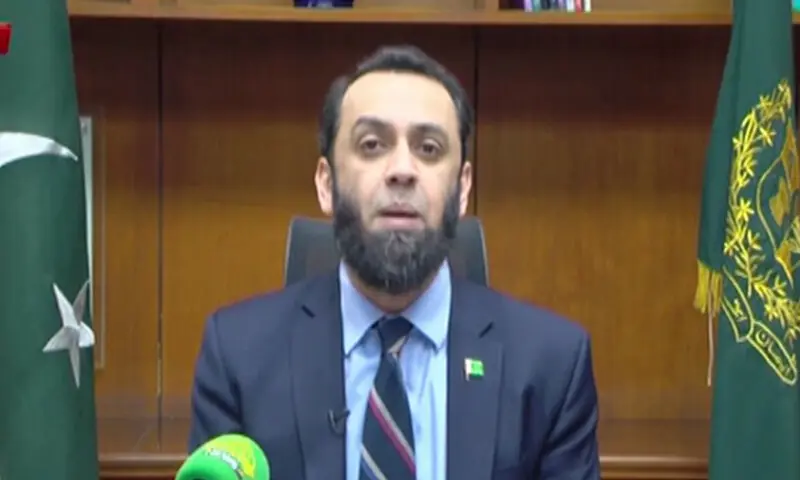a report of Washington Post published on Tuesday details an assassination program allegedly executed by India’s external intelligence agency to kill around half a dozen people in Pakistan starting in 2021.
He Mail examined six cases in Pakistan through interviews with Pakistani and Indian officials, the militants’ allies and relatives, and a review of police documents and other evidence collected by Pakistani investigators. They revealed the contours of an ambitious Indian assassination program with marked similarities to operations in North America.
It detailed the attack on Amir Sarfraz Tamba, the man who allegedly killed Indian prisoner Sarabjit Singh in Kot Lakhpat prison in 2013.
“The incident appeared to be the latest example of what Pakistani officials call a surprising development in the long shadow war between the two South Asian rivals.
“Although India and Pakistan have long used militant groups to wreak havoc in each other’s countries, India’s intelligence agency, the Research and Analysis Wing (RAW), has since 2021 deployed a methodical assassination program to killing at least half a dozen people deep in Pakistan. According to Pakistani and Western officials, Mail saying.
The article described Indian Prime Minister Narendra Modi as the most determined and confrontational leader against India’s adversaries since the country’s independence.
“Since last year, India’s relations with Western governments have been rocked by accusations that RAW officials also ordered the murder of Sikh separatists in Canada and the United States, operations that appeared to be a consequence of a proven campaign and refined for the first time in Pakistan”. he Mail aggregate.
According to the officials cited in the article, the murders in Pakistan were carried out by local petty criminals or Afghan hitmen, but never by Indian citizens.
“To aid the denial, RAW officers employed businessmen in Dubai, a regional commercial hub, as middlemen and deployed separate, isolated teams to surveil targets, execute assassinations and funnel payments from dozens of informal and unregulated banking networks known as hawalas established on multiple continents, according to Pakistani researchers.
“But the RAW also at times used sloppy techniques and poorly trained contractors, mirroring what U.S. and Canadian authorities observed.”
The article explained that the killings in Pakistan predominantly targeted alleged leaders of two United Nations-designated terrorist groups, Lashkar-e-Taiba and Jaish-e-Muhammad, which India has accused of attacking its troops or, in the past, to its citizens.
“The Sikh separatists who were attacked in Canada and the United States, Hardeep Singh Nijjar and Gurpatwant Pannun, were also designated as terrorists by India, although Western officials and analysts have questioned the persuasiveness of Indian evidence against them,” he added.
Many aspects of India’s operations in Pakistan had not been revealed before, according to the article. Both Pakistani and Indian officials, who spoke anonymously due to the sensitive nature of intelligence activities and ongoing investigations, provided insights.
The killings remain a sensitive issue in Pakistan, challenging the counterintelligence effectiveness of its security agencies and undermining its claims of not harboring terrorists. However, some Pakistani officials now argue that as Modi’s India becomes a world power, it must be held accountable for carrying out extrajudicial killings with impunity, the article added.
The article claimed that ISI Director General Nadeem Anjum had raised significant concerns about Indian assassinations to CIA Director William J. Burns in 2022, according to a former Pakistani official, long before the US allegations emerged. and Canada.
“Our concerns arose independently of the US and Canadian investigations,” said a current Pakistani official. “Can India rise up peacefully? Our answer is no.”
India’s Ministry of External Affairs declined to comment on the MailThe article.
The article further noted that Indian officials have historically neither confirmed nor denied their involvement in specific assassinations, stating that the assassinations are not part of Indian policy. However, these officials frequently highlight that Pakistan and Western nations have refused to extradite terrorists even though India presented evidence of their crimes, and they also note that many Islamist militants in Pakistan have been eliminated by drone strikes. Americans.
The article revealed that, around the same time, a RAW officer in New Delhi, Vikash Yadav, orchestrated an attempted assassination of Pannun, a Sikh separatist residing in New York, as described in a US federal indictment. The officer reportedly ordered his agent, businessman Nikhil Gupta, to hire a local assassin. Like Ansari, Yadav managed operations remotely, appeared pressed for time and made comments that hinted at a broader effort to eliminate a substantial list of targets.
“But unlike Pakistan, U.S. prosecutors said the New York plot was quickly thwarted after Gupta unknowingly asked a DEA informant to introduce him to a hitman.
“At the same time, Canadian officials said they had also uncovered an extensive Indian campaign to surveil, intimidate and even kill Sikhs. While criminal elements were employed, as in Pakistan, Indian diplomats stationed in Canada were also recruited to monitor members of the Sikh diaspora, according to Canadian officials, who cited the diplomats’ private electronic conversations and text messages. It is unclear how those conversations were obtained.”
The article stated that Christopher Clary, a political science professor at the State University of New York at Albany who has studied alleged Indian operations, commented that the RAW’s track record of targeted killings appeared similar to that of Israel’s external intelligence agency. the Mossad. While Mossad successfully carried out assassinations in less developed countries, its agents were captured on hotel surveillance cameras during a 2010 operation to kill a Hamas leader in Dubai.
“A reading is [the RAW] They had been successful in Pakistan for a whole year before they started developing this effort in the West,” Clary said. “But the tactics, techniques and procedures that worked quite well in Pakistan didn’t necessarily work in the West.”
The article noted that despite the setback, RAW was unfazed. Four weeks later, a group led by a worker named Muhammad Umair shot Shahid Latif, whom Indian officials accused of orchestrating a 2016 raid on an Indian Air Force station that hampered diplomatic efforts between Modi and his counterpart. Pakistani, Nawaz Sharif.
However, this time, RAW faced a different kind of backlash. After his arrest, Umair admitted that he had been sent from Dubai to personally kill Latif after several failed attempts by his accomplices. According to two people familiar with the case, Umair revealed the location of a safe house in Dubai, prompting Pakistani agents to raid the apartment. They found valuable information but did not locate its two Indian occupants, Ashok Kumar Anand Salian and Yogesh Kumar. (Umair could not be reached for comment.)
“Until then, Pakistan had rarely acknowledged Indian operations. But at a press conference in February, Pakistani Foreign Minister Muhammad Syrus Sajjad Qazi showed scans of passports belonging to Salian and Kumar and accused them of directing the murders of Latif and Riyaz a month earlier. India dismissed Qazi’s claims as “false and malicious anti-India propaganda.”
attempts to The mail locating Salian were unsuccessful. The article mentions that in April, Salian made his only public appearance during an interview with a pro-government Indian television channel. Sitting in a simple New Delhi apartment and wearing dark sunglasses inside, he claimed to be the owner of an ordinary business in Dubai. He claimed he hired a Pakistani worker at his internet cafe, who may have acted without his knowledge, and denied any links to RAW.
“After Pakistan arrested him, they should have seen who his sponsor was in Dubai,” Salian said. “I feel aggrieved that my data is highlighted and my reputation is damaged.”
Salian’s alleged accomplice, Kumar, could also not be located. Anmol Gora, a dairy business owner in the Rajasthan state village listed as Kumar’s birthplace, said Kumar had not been seen there in five years. Residents said he lived in Dubai, Gora said.
“The townspeople say he was involved in some shady business, so he just disappeared,” Gora said.
According to the article, Pakistan began publicly denouncing India in 2024 after Pakistani officials claimed that a series of killings appeared to benefit the Modi government domestically.
Late last year, many pro-government Indian television channels were broadcasting enthusiastic programs marveling at the extraterritorial reach and efficiency of RAW. Pakistani officials were especially irritated by Indian news that emerged almost immediately after some killings.
“In many cases they celebrated even before our police knew they had been killed,” one official said.
One day after Guardian After releasing a report on killings in Pakistan this year, Modi – without explicitly confirming any killings – boasted during a campaign rally of “entering [India’s enemies’] homes and kill them.”
Indian Interior Minister Amit Shah, who Canadian officials say was named by Indian diplomats in their private conversations as the senior government official who led the covert efforts, was equally cheerful. “Whoever committed the murders, what’s the problem?” Shah said in a television interview. “The agency will do its job. Why should we interfere?
The article quoted Srinath Raghavan, a renowned Indian military historian and former army officer who served in Kashmir, as saying that the Modi government has highlighted special forces raids inside Pakistan and promoted Bollywood films that glorify undercover agents. of India.
“The whole slogan is, ‘This is the New India,’” Raghavan said. “The Modi government came with the view that there is a need to fight back and there is a need to give public signals that they are doing so. “Its objective is to tell Pakistan that we are willing to come and hit hard, but it also has an internal component.”
The article stated that Kashmiri fighters, central to the conflict, argue that Indian officials have reasons to exaggerate their own lethal capabilities and that Pakistani officials should not be taken at face value either. However, analysts suggest that Indian officials have clearly demonstrated its wide and lethal reach to both Pakistan and the Indian public.
Asad Durrani, former director general of Pakistan’s ISI, added that it may serve the interests of certain officials in both India and Pakistan to continue their shadow war, with the aim of destabilizing each other and gaining political advantages.
“Any state or non-state actor who can get away with it would do it,” Durrani said. “Neither side is willing to pay the price for peace.”

